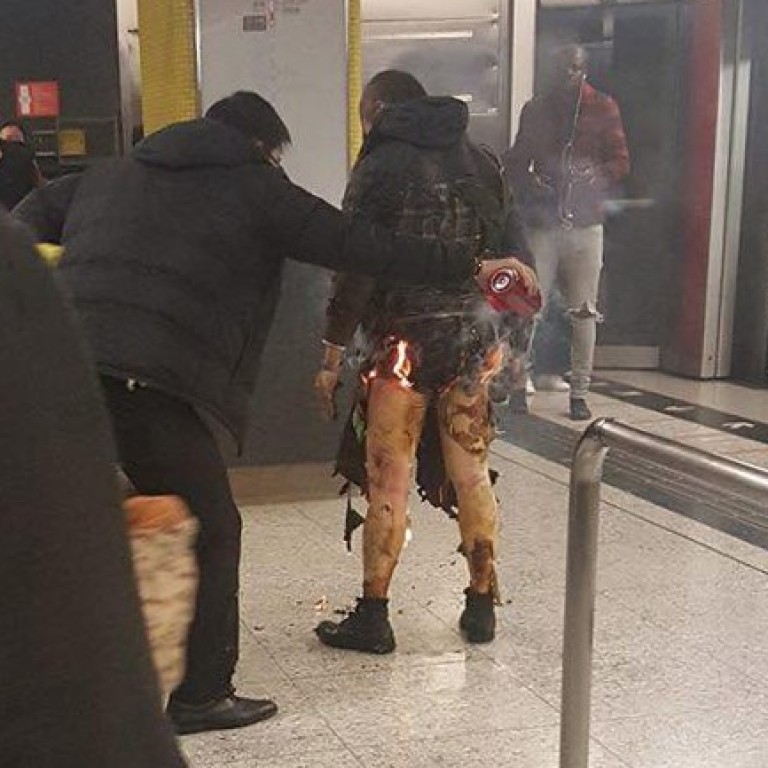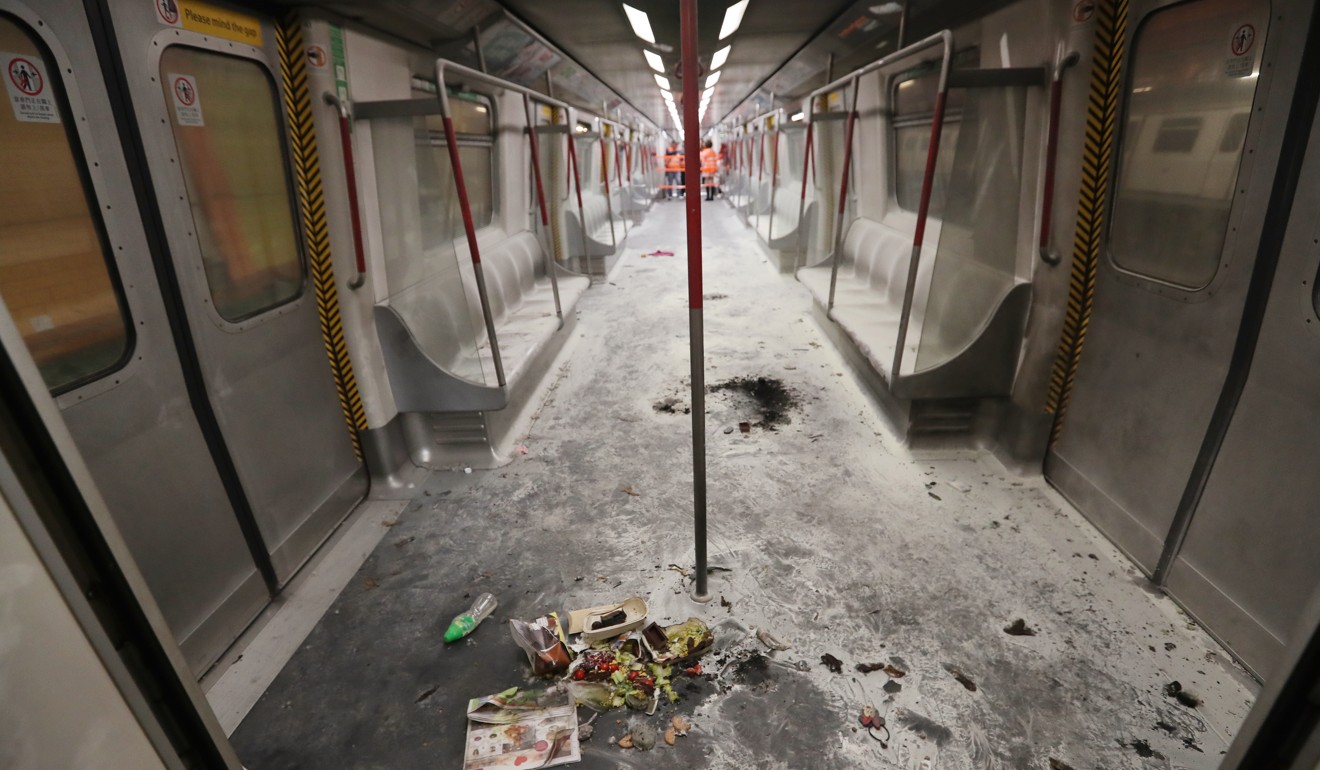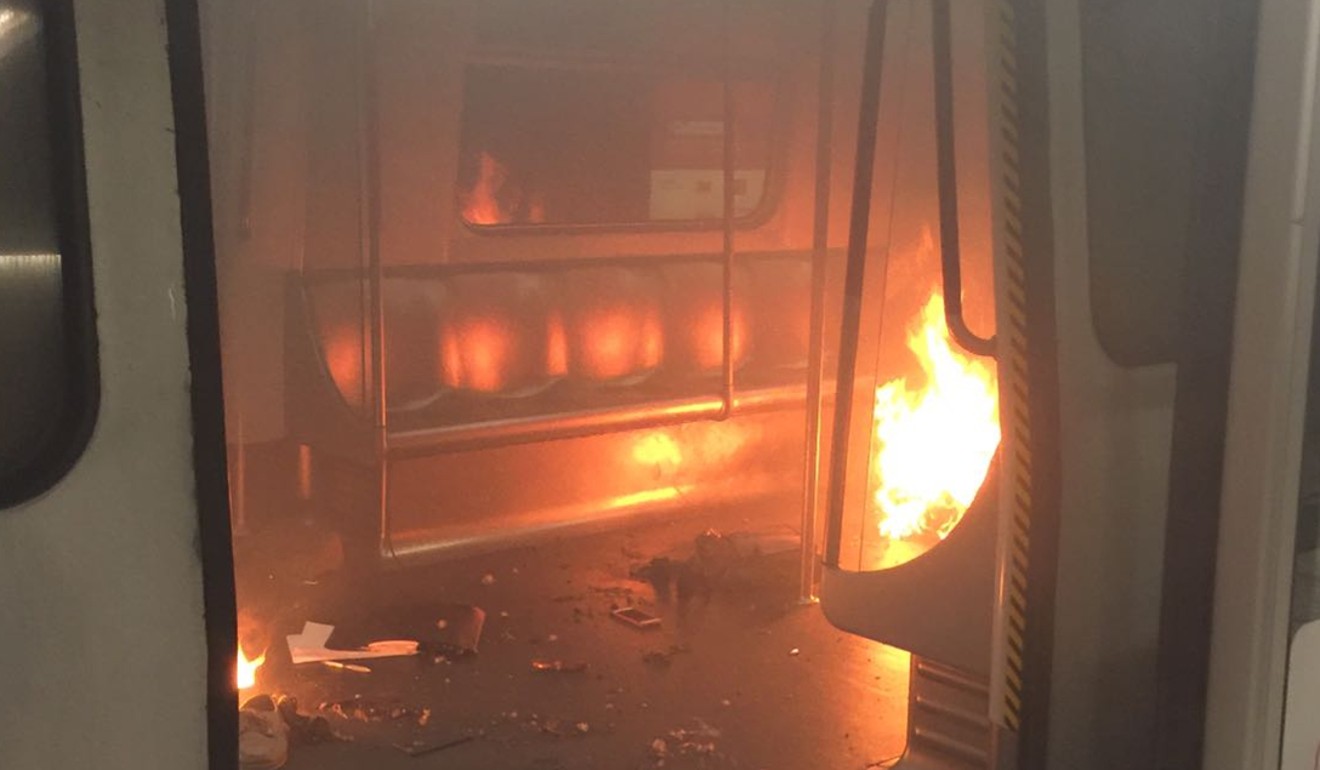
Hong Kong man in MTR arson case likened to ‘walking bomb’ despite getting ‘better psychiatric treatment than others’
- Cheung Kam-fai had struggled with a gambling addiction and racked up a debt of HK$100,000, court hears
- Medical records show he was first diagnosed as delusional in 2007 when he thought somebody was going to kill his son
But Cheung Kam-fai’s psychiatrist revealed a different side to the man, calling him a polite and cooperative patient with very good insight into his condition.
The remark surprised Coroner Ko Wai-hung, following earlier evidence from Cheung’s wife, who had testified about his poor and declining mental health in the years leading to the arson attack.
“Then perhaps he was very good at acting,” Ko said.
The coroner is guiding a five-member jury to ascertain the cause of Cheung’s death. He was reported to be 60 at the time.
Man who torched MTR train in 2017 was ‘unstable and tried to kill family’
The court heard Cheung had for years struggled to cope with a gambling addiction, which at its peak had left him with a HK$100,000 debt (US$12,800). The issue became a frequent cause of argument between him and his wife, who later demanded a divorce in late 2016, a few weeks before the attack. But Cheung did not want a divorce.
Medical records showed Cheung was first diagnosed as delusional in 2007 when he thought somebody was going to kill his son. He became emotional, grabbing his son’s neck, and was then placed in a psychiatric ward for more than a month.

Dr Chung Pui-yin, who treated Cheung since 2012, said the man was admitted again that year when his wife found he had increased his spending and brought him to the hospital.
But the psychiatrist said Cheung had stopped displaying violent tendencies since 2007 and attended monthly or bimonthly appointments for injections to treat his delusions, calling in advance to reschedule when necessary – until the day of the attack on February 10.
“The clinic called him three times but there was no response,” Chung said. “Later we saw the incident on TV.”
The clinic called him three times but there was no response ... Later we saw the incident on TV
At least 18 people were injured in the arson attack.
Several witnesses had recounted seeing a man splash liquid from a bottle that smelled like paint thinner on board a train carriage travelling from Admiralty to Tsim Sha Tsui that evening.
Senior Government Chemist Dr Billy Leung Kar-on said the carriage sustained limited burns as reflected by the thin layer of smoke and ash. Shoes, phones, glasses, clothes and food were strewn all over the scene.
Leung also found four bottles of colourless, flammable liquid at the site. He said one of them had melted while the others were “rather full”.
Hong Kong MTR firebomb suspect dies in hospital from ‘organ failure’
A police constable said Cheung confessed to the act of arson shortly before he lost consciousness.
Cheung was first sent to Queen Elizabeth Hospital in Jordan and transferred to Prince of Wales Hospital in Sha Tin, where he was diagnosed with acute kidney failure in addition to severe burns.
He went into cardiac arrest shortly after 4am on May 14, 2017 and was certified dead at 5.19am after doctors spent 30 minutes attempting to resuscitate him.
The psychiatrist said a delay of one to two weeks in receiving injections was acceptable since the effects of the drug would not immediately disappear once the month was up.

But Chung noted the drug could not be used to treat stress from family or societal issues, and found that the attack might have been a result of a relapse of Cheung’s psychiatric condition.
He further explained psychiatrists had no legal power to compel patients to accept treatments and that even a sufficient dosage of drugs could not have prevented a relapse in the case of schizophrenics.
Chung said his patient was already given extra attention when the clinic had called instead of just mailing him an appointment reminder, as per usual practice. Cheung had also been taking new and effective drugs on top of therapies for gambling offered by two organisations.
“Was there any way of following up?” the coroner pressed on, expressing concern that Cheung might have been a “walking bomb”.
Chung replied: “He was already receiving better treatment than others.”
The inquest continues on Wednesday.

